Introduction
This issue of History in Focus marks the 40th anniversary of E.H. Carr's, What is History? This book 'for many today ... is the most influential book on history thinking published in Britain this century' (Reappraisal of What is History?, Professor Alun Munslow).
In this issue:
- articles: four articles on the philosophy and practice of history
- websites: websites that look at theories of history, reviewed by the In Focus editorial team.
- book reviews: reviews of major books on the practice of history. See below for review tasters.
- bibliography: key books on historiography and the practice of history.
- research: details of PhD theses about the nature of history, and university teachers who specialise in this area.
Review tasters
- 'In Defence of History' and Postmodernism
- History and its Postmodern Critics
- The Fundamentals of History
- Historians' Biographies
- E.H. Carr
- Ernest Gellner
- The Logic of the History of Ideas
'In Defence of History' and Postmodernism
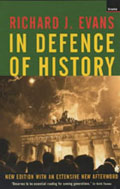
Professor Richard Evans mounts a robust defence of his book, In Defence of History (1997), which 'inevitably ... aroused a good deal of controversy'. He answers criticisms ranging from the straightforward belief that history, and particularly academic and scholarly history, does not need defending to the apparently contradictory assertions that the book is both unfairly critical of conservative historians and at the same time defends a conservative approach to history.
Professor Evans's critics are represented here by, among others, Professor Anthony Easthope and Dr. Diane Purkiss.
Professor Anthony Easthope's review (1999) suggests that 'Though his name is on the cover Richard J. Evans did not really write In Defence of History - rather, the dominant paradigm of the English empiricist tradition wrote it for him, because he made no critical attempt to interfere with its passage through him onto the page', and takes issue with the view 'that all history-writing faces is the regrettable little difficulty that the past is not actually "felt and experienced by our senses" in the present'.
Dr. Purkiss admits that 'Throughout In Defence of History, Evans is eager to seem genial, pleading for mutual tolerance between literary and historical branches of study, and urging cease-fires in various long-fought battles', but is keen to respond to 'one of his chief complaints ... that his book has not provoked the kind of debate for which he hoped'. She also passionately defends her own The Witch in History, with 'a plea for attentive reading not of intentions, but of meanings'.
History and its Postmodern Critics
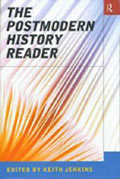
In his article, 'An Engagement with Postmodern Foes, Literary Theorists and Friends on the Borders with History', Professor Patrick K. O'Brien suggests that 'a majority of professional historians will, I predict, obdurately refuse to incur the costs of engagement at a philosophical level with the postmodern challenge to the very foundations of their craft as practised in Britain, Europe and Japan'. He nevertheless asserts that 'many will react with undisguised irritation to Keith Jenkins and others who are intolerant of those who wish to 'study the past for its own sake' and purport to recognise that not uncommon and respectable justification as ideology propagated by historians who are complacent about the present'.
In his reply, Professor Alun Munslow welcomes the 'generous and open-minded note' struck by Professor O'Brien, but acknowledges 'some basic doubts about the assumed connections made by Professor O'Brien between evidence, concept, interpretation, and meaning'. He argues 'my history is historicist in that I want to see history as a contemporary and emancipatory cultural practice, and I do not think a narrow concentration on finding out the empirical reality is the only thing required in order to do that - you can use moral argument and non-empiricist positions just as well to know something about the past.'
The Fundamentals of History
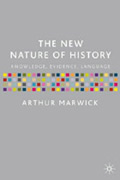
In this original article Professor Arthur Marwick discusses 'The Fundamentals of History', defining history as 'The bodies of knowledge about the past produced by historians, together with everything that is involved in the production, communication of, and teaching about that knowledge'.
Professor Marwick argues for the necessity of history, on the grounds that 'knowledge of the past is essential to society ...Without knowledge of the past we would be without identity, we would be lost on an endless sea of time'.
Arthur Marwick's The New Nature of History: Knowledge, Evidence, Language was published by Palgrave July 2001. Addressing the key questions of what history is, and why and how one studies it, the book is a positive affirmation of the vital importance to society of the study of the past, and of the many crucial learning outcomes which accrue from historical study.
The New Nature of History is reviewed by Professor Alun Munslow, who reflects upon ' the three fundamentals of doing history as seen from the Marwickian perspective', that is Knowledge, Evidence and Language. He concludes: ' All that historians can be happy with, I think, is a narrative truth. To argue otherwise, as Marwick does in this book is, paradoxically, to be unrealistic and misleading'.
In his combative response, Professor Marwick argues that his book is 'a joyous celebration of the immense achievements of professional history'.
Historians' biographies
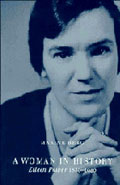
Dr. Helen Mellor reviews Maxine Berg, A Woman in History: Eileen Power, 1889-1940 (Cambridge University Press, 1996), 'a wonderful book [which] invites a range of responses: from engaged discussion, heated argument to personal reminiscences ... it is charged with emotion: but the emotion is mostly a fine anger at the way a professional woman historian, who made a considerable contribution to the development of her discipline has been forgotten or, at best, patronised by male historians who have dominated the discipline since the Second World War'. Dr. Maxine Berg is grateful to Dr. Mellor 'for her careful reading and enthusiastic response to my book', but admits to surprise 'that she finds this an angry book'.
Dr. Paul Addison reviews Professor Kathleen Burk's biography of A.J.P. Taylor, Troublemaker: The Life and History of A.J.P. Taylor (Yale University Press, 2000). Professor Burk was the last of Taylor's postgraduate students, and 'In a departure from her more familiar role as an economic historian, she has written an excellent study of his life and work that restores him to his rightful place in the history of History'. Dr. Addison (also one of Taylor's postgraduate students) concludes that the book has successfully 'rescued a great scholar from the shadow of his alter ego, the wizard of the television studios'. In Professor Burk's response to this 'generous' review she reveals that 'Because I wrote as an historian, I was driven to crawl into every nook and cranny to locate material ... I am a proud, defiant empiricist, and I am undoubtedly happier with a document to dissect rather than with a mind to fathom. Nevertheless, I tried to do both, but it may be that I missed my century, and that my biography properly belongs in the section of the library devoted to nineteenth century life-and-times'.
E.H. Carr
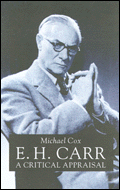
Professor Alun Munslow reviews E.H. Carr: A Critical Reappraisal, ed. Michael Cox (Palgrave, 2000), and also picks up on Carr's multi-facted nature - 'Carr had several careers pursued in parallel: journalist, Civil Servant Mandarin, biographer, historian, and historiographer/philosopher of history'.
Professor Munslow contends that 'Carr's insistence that history should be politically relevant was an inspiration in the heady days of 1968. But it also brought problems, especially in its linkage with the idea that the vast majority of human beings in the past were of no interest to the historian because they had made no contribution to political change. It was precisely this idea that the social historians of the 1960s set out to challenge'. He concludes that 'In some respects ... What is History? was outdated even when it first appeared. And yet in others it has never been superseded'.
Alun Munslow also writes a reappraisal of E.H. Carr's work and 'his contribution to the analytical philosophy of history' in particular. He suggests that while 'For many years ... the methodologically foundationalist wing of the history profession regarded the book as espousing a dangerous relativism ... [t]his has now all changed. Arguably the central ideas in the book constitute today's mainstream thinking on British historical practice'.
See also the articles section for Professor Richard Evans's article, 'The Two Faces of E.H. Carr', an overview of E.H. Carr's influence.
Ernest Gellner
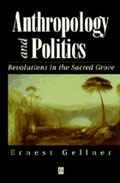
Professor Alan Macfarlane assesses the work of Ernest Gellner, specifically Conditions of Liberty: Civil Society and its Rivals (Penguin, 1996) and Anthropology and Politics: Revolutions in the Sacred Grove (Blackwell, 1995). Gellner's 'own life, poised between thought systems and cultures, had put him in an unique position to appreciate the 'great transformation' of modernity'. While 'Many of his twenty books were concerned with philosophy, sociology and anthropology', this was the historical question at the core of his work.
The Logic of the History of Ideas
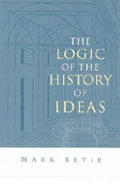
Professor Alun Munslow reviews Mark Bevir's The Logic of the History of Ideas (Cambridge University Press, 1999). Munslow believes that 'the questions [this] book addresses are important to historians in their everyday work' and suggests that 'explorations are useful reminders of the complex nature of agent intentionality, objectivity and belief.'
Dr. Mark Bevir responds to the criticism that 'the flaw in my argument [is] the account of meaning as intention'.

